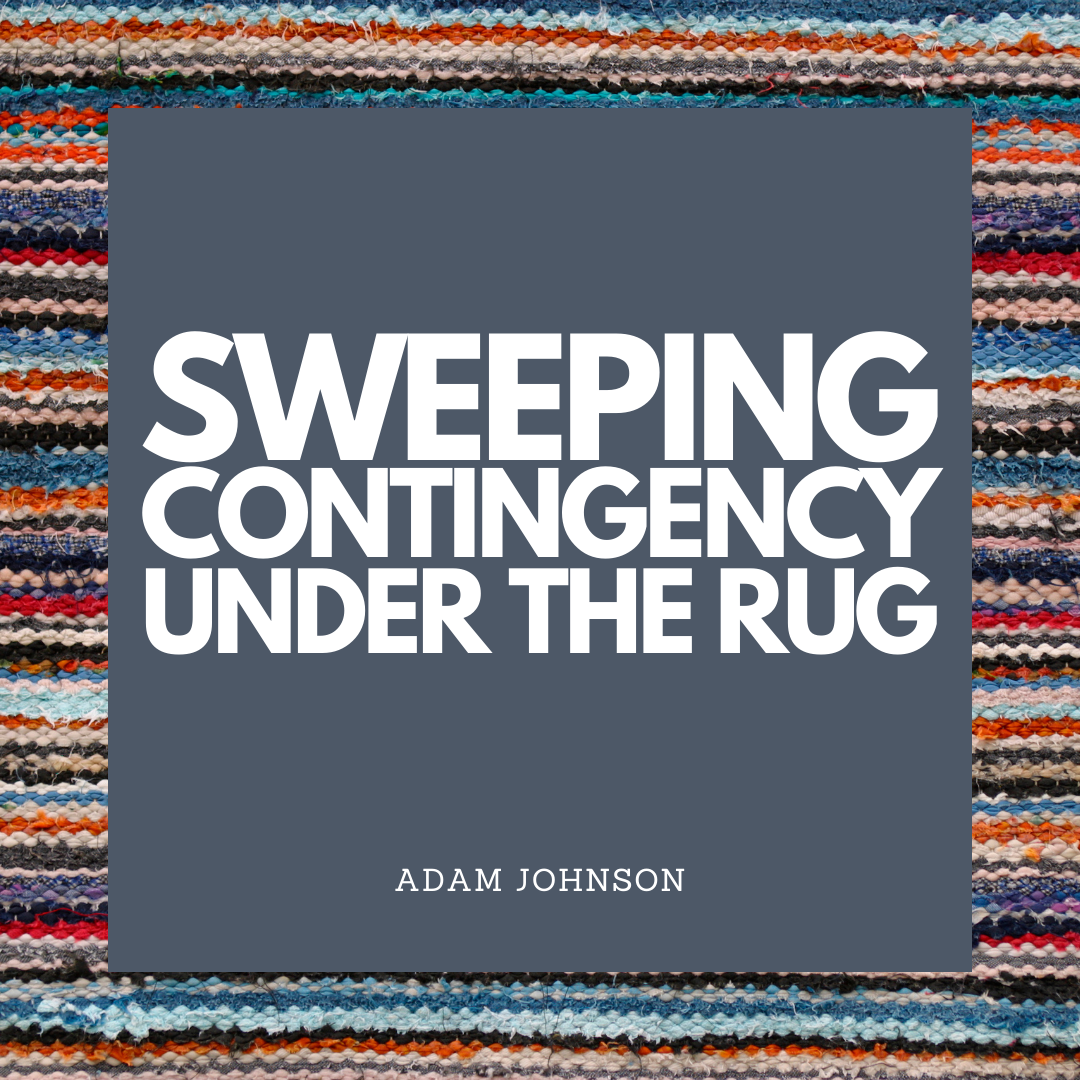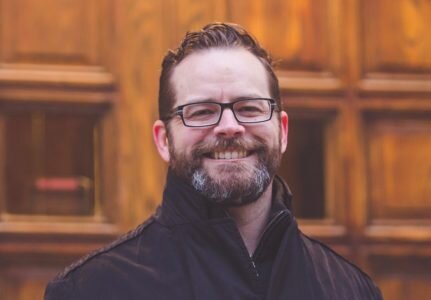Sweeping Contingency Under the Rug (Part 2)
/Editor’s note: This article was originally published at Convincing Proof
Atheists Should Reject the Notion that Cognitive Faculties Instantiate Moral Properties
Wielenberg used this third-factor model to respond to Street’s articulation of the lucky coincidence objection, as well other EDA’s made by Harman, Ruse, Joyce, and Kahane.24 Because he believes that moral properties and facts are causally inert, that they “cannot causally affect our senses or our minds,”25 he proposed that a third factor, our cognitive faculties, are responsible for both moral properties as well as our moral beliefs. If moral properties and moral beliefs come from the same source, then this explains the correspondence between these two seemingly unrelated types of things. Thus his third-factor model has two parts to it: 1. Cognitive faculties make moral properties be instantiated; and 2. Cognitive faculties generate moral beliefs.
The first part of Wielenberg’s third-factor model, his claim that cognitive faculties make moral properties be instantiated, is built on the concept of D-supervenience, a term he coined as a way to refer to Michael DePaul’s version of supervenience.26 Wielenberg argued that moral properties D-supervene on non-normative properties, and particularly on our cognitive faculties. He explained that “[g]iven DePaul’s understanding of dependency, if M depends on some base properties B, then M is not identical with, reducible to, or entirely constituted by B, but the instantiation of B explains the instantiation of M; it is B’s instantiation that makes M be instantiated… This making relation (as I shall henceforth refer to it) is distinct from supervenience.”27
His proposed D-supervenience, or making relationship, is distinct because supervenience, as it is normally understood, is merely a relationship of correlation whereas making is actually explanatory. He construes the making relationship involved in D-supervenience as a sort of robust causation, thus describing making as type of causation.28 In his model he maintains that “the making relation is the cement of the foundation of normative reality.”29 Wielenberg summarized well this making relationship in his model when responding to the following question: What is the source of human moral rights and obligations?
I propose the following answer: any being that can reason, suffer, experience happiness, tell the difference between right and wrong, choose between right and wrong, and set goals for itself has certain rights, including the rights to life, liberty, and the pursuit of happiness, and certain obligations, including the duty to refrain from rape (in typical circumstances). Having such cognitive capacities makes one have such rights and duties. Evolutionary processes have produced human beings that can reason, suffer, experience happiness, tell the difference between right and wrong, choose between right and wrong, and set goals for themselves. In this way, evolutionary processes have endowed us with certain unalienable rights and duties. Evolution has given us these moral properties by giving us the non-moral properties that make such moral properties be instantiated. And if, as I believe, there is no God, then it is in some sense an accident that we have the moral properties that we do. But that they are accidental in origin does not make these moral properties unreal or unimportant.30
It should be noted that some have questioned this first part of Wielenberg’s model. For instance, Baggett and Walls, while not opposed to a third-factor approach in principle, argue that the possession of cognitive faculties does not “satisfactorily explain the existence of binding moral obligations and inextirpable human rights.”31 While considering a similar notion, that we should ascribe value to human beings because they have the capacity for rational reflection, C. Stephen Evans makes the point that “many people believe that young infants and people suffering from dementia still have… intrinsic dignity, but in both cases there is no capacity for rational reflection.”32 In other words, Wielenberg’s model seems to imply that if a particular human being does not have sufficient cognitive faculties—if they are unable to “reason, suffer, experience happiness…” etc.—then they do not have moral rights. Surely Wielenberg believes that infants and people suffering from dementia have moral rights, but the fact that his model does not seem to allow for such rights might be an indication that his model is deficient.
Interestingly, to make his case for D-supervenience, Wielenberg uses as an example a belief that theist’s have, namely, that God has the power to make moral properties be instantiated. He pointed out that DePaul, to explain his notion of supervenience as making, used an example from William Paley where Paley claimed God’s commands make certain activities morally obligatory.33 In fact, Wielenberg often borrowed concepts from theism; for example, he also wrote that “[a] paradigmatic example of the sort of robust causation I have in mind is the causal relation that many theists take to hold between a state of affairs being divinely willed and the obtaining of that state of affairs.”34 In addition, he also made the following suggestion:
[I]t may be helpful to consider the doctrine of divine conservation… On at least some versions of this doctrine, there is a robust causal relation between divine willing and every contingent thing at each moment of its existence. One way of construing my proposal… is as a doctrine of non-moral conservation: whatever moral properties are instantiated are conserved or sustained by various underlying non-moral properties via a robust causal relation that holds between the relevant non-moral and moral properties.35
After using this theistic concept as an example, he even felt it necessary to warns his readers that this “should of course not be understood as ascribing agency to non-moral properties.”36
Wielenberg’s numerous appeals to theistic concepts may be part of his strategy to preempt criticism from theists. In other words, it may be more difficult for theists to criticize these concepts within his model because these concepts are found in their models too. That this is part of his strategy is evidenced by his admission that “I highlighted some important common ground between my version of robust normative realism and traditional theism. I will argue… that the existence of this common ground short-circuits some common theistic objections to my brand of robust normative realism.”37 However, such a strategy further distances his position from ROM atheists. If someone rejects theism, it would seem that, to be consistent, she should also reject Wielenberg’s model because it includes many concepts that are borrowed from theism.
By using numerous theistic concepts to build his model, Wielenberg actually illustrated that objective morality is more plausible given theism as opposed to atheism. He touched on this point after he explained that his model “has an ontological commitment shared by many theists” in that it includes the existence of metaphysically necessary brute ethical facts.38 In a footnote he responded to theist C. Stephen Evans’ observation that many atheists find such facts odd:
Evans questions the existence of basic ethical facts as characterized here as follows: ‘The fact that so many naturalists, including philosophers such as Mackie and Nietzsche, find the idea of non-natural moral facts odd or queer, shows that they are indeed the kind of thing one would like to have an explanation for.’ In light of the fact that the very same naturalists have similar doubts about the existence of God, it’s hard to see how traditional theists can consistently press this sort of objection against a view like mine.39
By pointing out that many atheists doubt the existence of brute ethical facts, Evans is not condoning the reason (in this particular case, that the item in question seems to have no explanation) atheists give for this doubt per se. If Evans was condoning their reason, then Wielenberg would be correct—theists would be condoning a reason atheists often give for doubting the existence of God as well. Instead, Evans is making the point that doubting the existence of God is similar to, as well as related to, doubting the existence of brute ethical facts. If an atheist doubts God because there is no explanation for His existence then, if consistent, she should also doubt the existence of Wielenberg’s brute ethical facts because he claims they have no explanation. Theists might not be able to press this particular reason against Wielenberg’s view, but ROM atheists can—and that is what Evans is pointing out. In other words, many of Wielenberg’s concepts (the power of robust causal making and brute ethical facts) seem out of place in the belief system of atheism, as many atheists have recognized. Given atheism, robust causal making and brute ethical facts seem quite fantastical, causing many atheists to doubt such things are real.
[24] Ibid., 146–65.
[25] Ibid., 86.
[26] Ibid., 10-13. Michael R. DePaul, “Supervenience and Moral Dependence,” Philosophical Studies 51 (1987): 425–39..
[27] Wielenberg, Robust Ethics, 10–11.
[28] Ibid., 18-19.
[29] Ibid., 38.
[30] Ibid., 56.
[31] Baggett and Walls, God and Cosmos, 209.
[32] C. Stephen Evans, “Moral Arguments for the Existence of God,” in The Stanford Encyclopedia of Philosophy (ed. Edward N. Zalta, June 12, 2014), URL = <https://plato.stanford.edu/entries/moral-arguments-god/>.
[33] Wielenberg, Robust Ethics, 11.
[34] Ibid., 18.
[35] Ibid., 20.
[36] Ibid.
[37] Ibid., 36.
[38] Ibid., 38.
[39] Ibid.
Adam Lloyd Johnson serves as a university campus missionary with Ratio Christi. He also teaches classes for Midwestern Baptist Theological Seminary and spends one month each year living and teaching at Rhineland Theological Seminary in Wölmersen, Germany. Adam received his PhD in Theological Studies with an emphasis in Philosophy of Religion from Southeastern Baptist Theological Seminary in 2020.
Adam grew up in Nebraska and became a Christian as a teenager in 1994. He graduated from the University of Nebraska and then worked in the field of actuarial science for ten years in Lincoln, Nebraska. While in his twenties, he went through a crisis of faith: are there good reasons and evidence to believe God exists and that the Bible is really from Him? His search for answers led him to apologetics and propelled him into ministry with a passion to serve others by equipping Christians and encouraging non-Christians to trust in Christ. Adam served as a Southern Baptist pastor for eight years (2009-2017) but stepped down from the pastorate to serve others full-time in the area of apologetics. He’s been married to his wife Kristin since 1996, and they have four children – Caroline, Will, Xander, and Ray.
Adam has presented his work at the National Apologetics Conference, the Society of Christian Philosophers, the Evangelical Philosophical Society, the International Society of Christian Apologetics, the Canadian Centre for Scholarship and the Christian Faith, the American Academy of Religion, and the Evangelical Theological Society. His work has been published in the Journal of the International Society of Christian Apologetics, Philosophia Christi, the Westminster Theological Journal, and the Canadian Journal for Scholarship and the Christian Faith. Adam has spoken at numerous churches and conferences in America and around the world – Los Angeles, Chicago, Charlotte, Boston, Orlando, Canada, Germany, the United Kingdom, and Switzerland. He is also the editor and co-author of the book A Debate on God and Morality: What is the Best Account of Objective Moral Values and Duties? published by Routledge and co-authored with William Lane Craig, J. P. Moreland, Erik Wielenberg, and others.





















